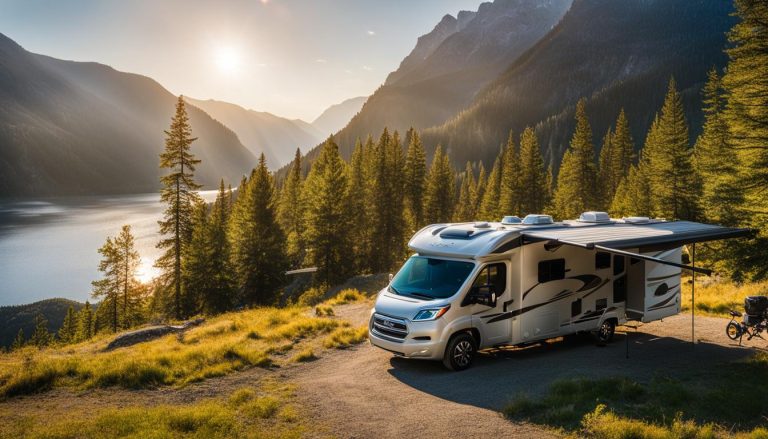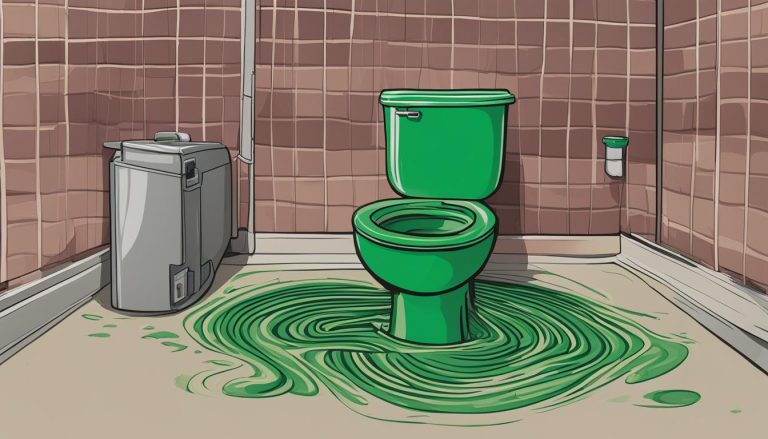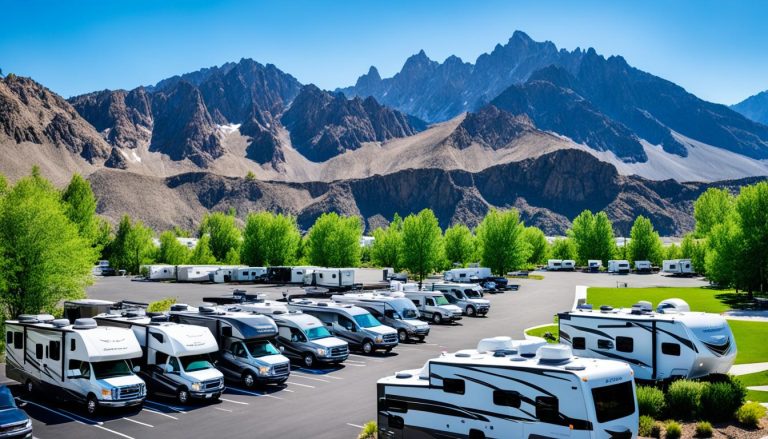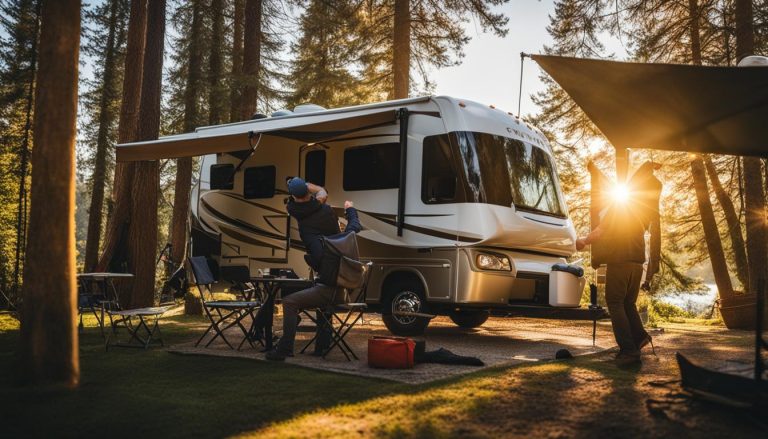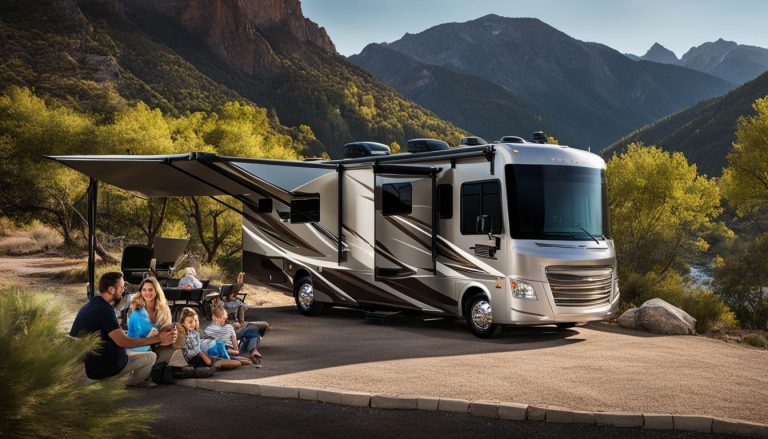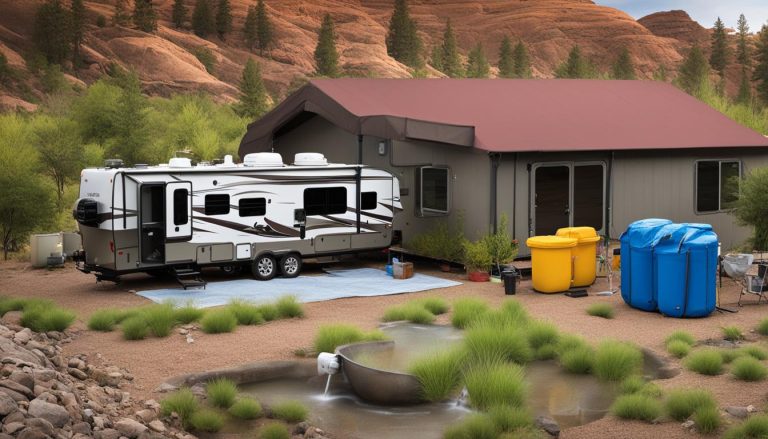Eliminate RV Water Heater Odors Quickly & Easily
gorvlifestyle.com and its partners may earn a commission if you purchase a product through one of our links
If you own an RV, you may have encountered the unpleasant smell coming from your hot water heater. This odor is often described as a rotten egg smell and can make using your RV’s water system unpleasant. But fear not, there are effective methods for getting rid of this smell and restoring a fresh, clean scent to your RV’s hot water. By following a few simple steps, you can eliminate the odor and enjoy odor-free hot water in your RV.
Key Takeaways:
- Removing odor from your RV’s hot water heater is possible and relatively straightforward.
- Flushing the water heater, replacing the anode rod, and using vinegar or hydrogen peroxide can help eliminate the smell.
- Regular maintenance of your RV’s water system is crucial in preventing the recurrence of odors.
- Checking for other potential sources of odor, such as bacteria in water hookups or freshwater tanks, is important if the smell persists.
- Proper maintenance of your RV’s water system can lead to longer lifespan, improved water quality, and better overall functioning.
Why Does Your RV Water Smell Like Rotten Eggs?
If you’ve ever encountered a foul smell coming from your RV’s hot water system, you may be wondering why your RV water smells like rotten eggs. The most common cause of this unpleasant odor is the presence of sulfur-reducing bacteria in your RV’s water heater. These anaerobic bacteria thrive in environments with little to no oxygen and can develop in your water heater tank. As they multiply, they produce hydrogen sulfide gas, which gives off the characteristic rotten egg smell.
Another possible cause of the rotten egg smell in your RV’s hot water system is the reaction between the magnesium or aluminum anode rod in the water heater and the bacteria present in the water. The anode rod is designed to protect the water heater tank from corrosion, but when it reacts with the bacteria, it can produce hydrogen sulfide gas as a byproduct, resulting in the unpleasant odor.
Understanding the root causes of a rotten egg smell in your RV’s hot water system is key to resolving the issue and enjoying clean, odor-free water during your travels.
How to Stop the Rotten Egg Smell in Your RV Hot Water
To eliminate the rotten egg smell in your RV’s hot water, there are several steps you can take.
- Flushing the RV Water Heater: Start by draining the water heater to remove any sediment or bacteria that may be causing the odor. Once drained, rinse the water heater with fresh water to ensure a clean and odor-free system.
- Replacing the Anode Rod: Consider replacing the anode rod in the water heater with a new one. This can help prevent the reaction between the rod and bacteria that produces the unpleasant smell. Opt for an aluminum-zinc anode rod, which is proven to be effective in eliminating bacterial activity and preventing the production of hydrogen sulfide.
- Using Hydrogen Peroxide or Vinegar: Another option is to use hydrogen peroxide or vinegar to eliminate the odor. Add these substances to the water heater and allow them to sit for a period of time before flushing them out. This can help kill off any remaining bacteria and eliminate the rotten egg smell.
By following these steps, you can effectively eliminate the unpleasant odor and enjoy fresh, odor-free hot water in your RV.
Benefits of Aluminum-Zinc Anode Rod
The use of an aluminum-zinc anode rod in your RV water heater offers several benefits. This type of anode rod is known for its excellent corrosion resistance and long lifespan. It is specifically designed to prevent bacterial activity and the production of hydrogen sulfide, effectively eliminating the rotten egg smell in your RV’s hot water. Additionally, the aluminum-zinc anode rod is compatible with most water types and does not release harmful substances into the water.
Routine Maintenance to Prevent Odor in Your RV Hot Water
To prevent the recurrence of the rotten egg smell in your RV’s hot water, it is important to perform routine maintenance on your water system. By following these maintenance practices, you can ensure clean and odor-free hot water for a more enjoyable RV experience.
Flushing RV Water Heater Regularly
Regularly flushing your RV water heater is essential for preventing odor and maintaining optimal performance. Flushing helps remove sediment and bacteria buildup that can contribute to unpleasant smells. To flush the water heater, follow these steps:
- Turn off the water heater and let it cool down.
- Locate the drain valve at the bottom of the water heater.
- Connect a hose to the drain valve and place the other end in a suitable drainage area.
- Open the drain valve and allow the water to flow out until it runs clear.
- Close the drain valve and refill the water heater.
Using a Flushing Wand to Remove Sediment from RV Water Heater
In addition to regular flushing, using a flushing wand can help remove stubborn sediment from your RV water heater. The flushing wand increases the pressure and reach of the water, allowing for a more thorough cleaning. Simply insert the wand into the water heater’s drain valve and spray water in different directions to dislodge and flush out any remaining sediment.
Checking and Replacing Anode Rod as Needed
The anode rod plays a crucial role in preventing corrosion in your RV water heater. Over time, the rod can degrade and become ineffective, leading to unpleasant odors. Regularly check the condition of the anode rod and replace it if necessary. Most anode rods need replacement every 1 to 2 years, but it may vary depending on usage. Refer to your RV water heater’s manual for specific instructions on checking and replacing the anode rod.
Inspecting and Cleaning RV Water System
To ensure optimal performance and prevent potential sources of odor, it is important to inspect and clean your entire RV water system. This includes the water tanks, plumbing, and any filters or screens. Look for any signs of contamination or plumbing issues, such as leaks or cracks. Clean the tanks and plumbing using RV-specific cleaning products or a mixture of vinegar and water. Regular inspections and cleaning help maintain a clean and odor-free RV water system.
Other Causes of Odor in RV Water
While sulfur-reducing bacteria in the water heater are the most common cause of a rotten egg smell in RV hot water, there can be other sources of odor as well. Bacteria in water hookups at campgrounds or in freshwater tanks can also produce unpleasant odors.
If you are experiencing an odor in your RV’s hot water despite addressing the water heater, it is important to consider these other potential sources and take appropriate steps to eliminate the odor. This may involve sanitizing the water system and using bleach or other cleaning agents to eliminate bacteria.
Examples of Other Causes of Odor in RV Water
| Cause | Solution |
|---|---|
| Bacteria in water hookups at campgrounds | Sanitize the water hookup and flush the system with clean water. |
| Bacteria in freshwater tanks | Clean and sanitize the freshwater tank regularly and ensure proper ventilation. |
By addressing these other potential causes of odor in RV hot water, you can ensure a fresh and pleasant experience when using your RV’s water system.>
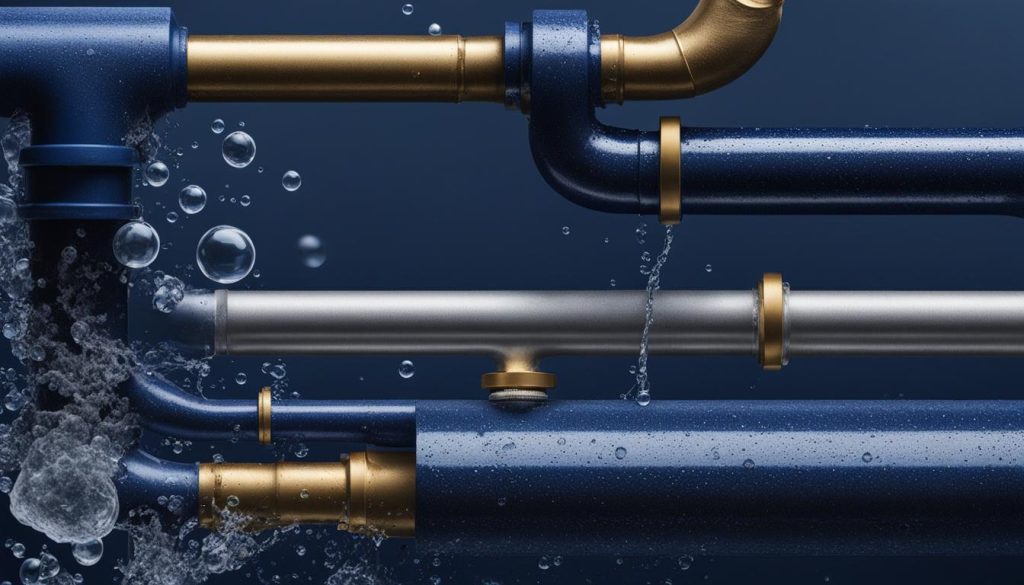
Signs That Your RV Hot Water System Needs Maintenance
It is important to keep an eye out for signs that your RV’s hot water system may need maintenance. By identifying and addressing these signs early on, you can prevent further issues and ensure the longevity and optimal performance of your RV’s hot water system.
- Foul smell from hot water faucets: If you notice a foul smell, such as a rotten egg odor, coming from your hot water faucets, it is a sign of potential issues in your RV’s hot water system. This smell is often caused by sulfur-reducing bacteria or a reaction between the anode rod and bacteria in the water.
- Discolored or cloudy water: If your hot water appears discolored or cloudy, it can indicate sediment buildup or contamination in your RV’s hot water system. This can affect the quality of your hot water and may lead to further problems if not addressed.
- Unusual noises from water heater: If you hear unusual noises coming from your water heater, such as banging, popping, or rumbling sounds, it is a sign that something is amiss. This can be caused by sediment buildup, a malfunctioning heating element, or other issues that require attention.
- Poor water pressure: If you experience a significant decrease in water pressure when using your hot water, it can indicate a blockage or malfunction within your RV’s hot water system. This can affect your overall water flow and may impact your comfort and convenience while using hot water.
Remember, early detection of these signs is crucial to prevent further damage and maintain the functionality of your RV’s hot water system. If you notice any of these signs, it is recommended to perform the necessary maintenance steps outlined earlier to address the issue and ensure the uninterrupted supply of clean, hot water in your RV.
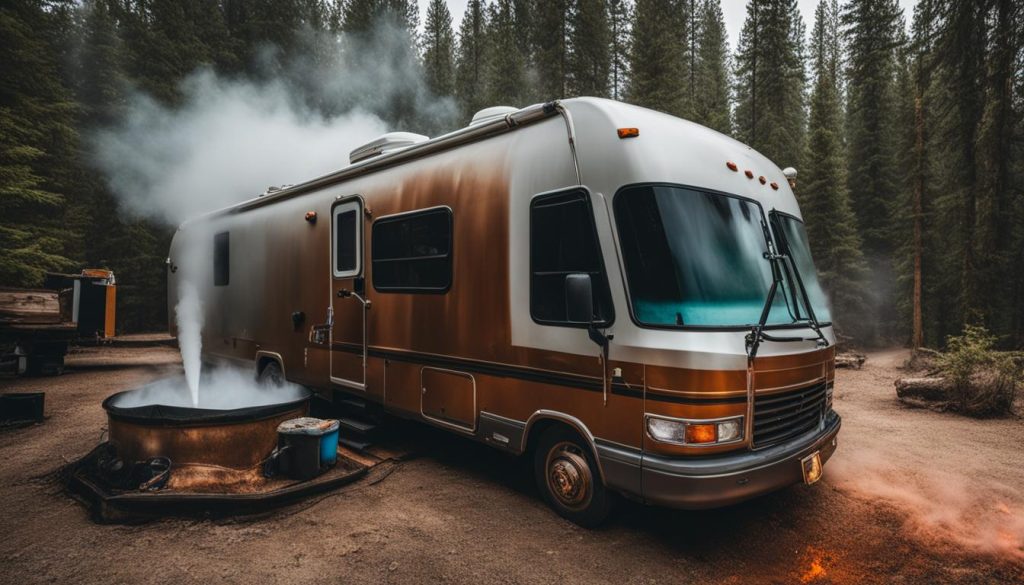
Regular maintenance and prompt action can help you avoid costly repairs and inconveniences down the road. By staying vigilant and taking care of your RV’s hot water system, you can enjoy a comfortable and hassle-free experience while on the road.
The Benefits of Proper RV Water Heater Maintenance
Taking the time to properly maintain your RV’s water heater can offer several benefits. First and foremost, it can extend the lifespan of the water heater, saving you money on costly replacements. By regularly cleaning and servicing your RV water heater, you can prevent the build-up of sediment and mineral deposits that can lead to corrosion and breakdowns. This proactive maintenance approach will ensure that your water heater operates efficiently for a longer period of time.
In addition to a longer lifespan, proper maintenance can improve the quality of the hot water in your RV. Over time, bacteria and other contaminants can accumulate in the water heater, leading to unpleasant odors and diminished water quality. By performing regular maintenance tasks such as flushing the water heater and replacing the anode rod, you can eliminate these issues and enjoy clean, odor-free hot water.
Another benefit of maintaining your RV water heater is reduced risk of odor and contamination. Sulfur-reducing bacteria, which are responsible for the notorious rotten egg smell, can thrive in an improperly maintained water heater. Regular maintenance, including flushing and disinfecting the water system, can help prevent the growth of these bacteria and minimize the risk of odors and contamination.
Proper maintenance also contributes to the better overall functioning of your RV water system. A well-maintained water heater ensures consistent water temperature and pressure, allowing for a more enjoyable and convenient experience while using your RV. It also helps prevent unexpected breakdowns and the need for costly repairs.
In summary, investing time and effort into maintaining your RV’s water heater brings numerous benefits, including:
- Extended lifespan for your water heater
- Improved water quality
- Reduced risk of odor and contamination
- Better overall functioning of your RV water system
By following a regular maintenance routine, you can maximize the performance and longevity of your RV water heater, ensuring clean, reliable hot water throughout your travels.
Enjoy Fresh, Odor-Free Hot Water in Your RV
Are you tired of dealing with unpleasant odors in your RV’s hot water? Don’t let a rotten egg smell spoil your trip! By following a few simple tips and performing regular maintenance on your RV’s water system, you can enjoy fresh and odor-free hot water in your RV.
First and foremost, it’s important to address any issues causing the odor. By flushing your RV’s water heater to remove sediment and bacteria buildup, you can eliminate the source of the smell. Additionally, consider replacing the anode rod in your water heater and using hydrogen peroxide or vinegar to further eliminate any lingering odor.
But it doesn’t stop there. Regular maintenance is key to maintaining clean hot water in your RV. Make sure to flush your water heater regularly to prevent sediment and bacteria buildup. Check and replace the anode rod as needed to prevent corrosion and bacterial activity. Don’t forget to inspect and clean your entire RV water system to ensure optimal performance and prevent any potential sources of odor.
With these simple steps and regular maintenance, you can enjoy clean, fresh hot water in your RV. So take the necessary actions today and say goodbye to unpleasant odors. Your next RV adventure awaits with odor-free hot water!
FAQ
How do I get the smell out of my RV hot water heater?
To eliminate the smell from your RV hot water heater, you can flush the water heater to remove sediment and bacteria, replace the anode rod, or use hydrogen peroxide or vinegar to eliminate odor. Installing an aluminum-zinc anode rod can also help prevent bacterial activity and odor.
Why does my RV hot water smell like rotten eggs?
The most common cause of a rotten egg smell in an RV’s hot water is sulfur-reducing bacteria in the water heater. Another possible cause is a reaction between the anode rod and bacteria in the water. These reactions result in the production of hydrogen sulfide, which creates the unpleasant odor.
How can I stop the rotten egg smell in my RV hot water?
You can stop the rotten egg smell in your RV hot water by flushing the water heater, replacing the anode rod, using hydrogen peroxide or vinegar to eliminate odor, or installing an aluminum-zinc anode rod. These methods help remove bacteria and prevent the production of hydrogen sulfide.
What routine maintenance can prevent odor in my RV hot water?
To prevent odor in your RV hot water, it is important to regularly flush the water heater to remove sediment and bacteria. Using a flushing wand can increase the effectiveness of the process. You should also check and replace the anode rod as needed, and inspect and clean the entire RV water system.
Are there any other causes of odor in RV water?
Yes, bacteria in water hookups at campgrounds or in freshwater tanks can also produce unpleasant odors in RV hot water. If you have addressed the water heater but still experience an odor, consider sanitizing the water system and using bleach or other cleaning agents to eliminate bacteria.
What are the signs that my RV hot water system needs maintenance?
Signs that your RV hot water system needs maintenance include a foul smell coming from the hot water faucets, discolored or cloudy water, unusual noises coming from the water heater, or poor water pressure. If you notice any of these signs, it is recommended to perform the necessary maintenance steps to address the issue.
What are the benefits of proper RV water heater maintenance?
Proper RV water heater maintenance can extend the lifespan of the water heater, improve the quality of hot water, prevent the recurrence of odors, and contribute to the overall functioning of the RV water system. Regular maintenance can save you money on costly replacements and ensure a pleasant and comfortable experience while using your RV’s hot water.
How can I enjoy fresh, odor-free hot water in my RV?
To enjoy fresh, odor-free hot water in your RV, it is important to follow the steps outlined earlier for eliminating the rotten egg smell and perform routine maintenance on your RV water system. By taking these steps, you can ensure that you have clean and fresh hot water whenever you need it in your RV.

